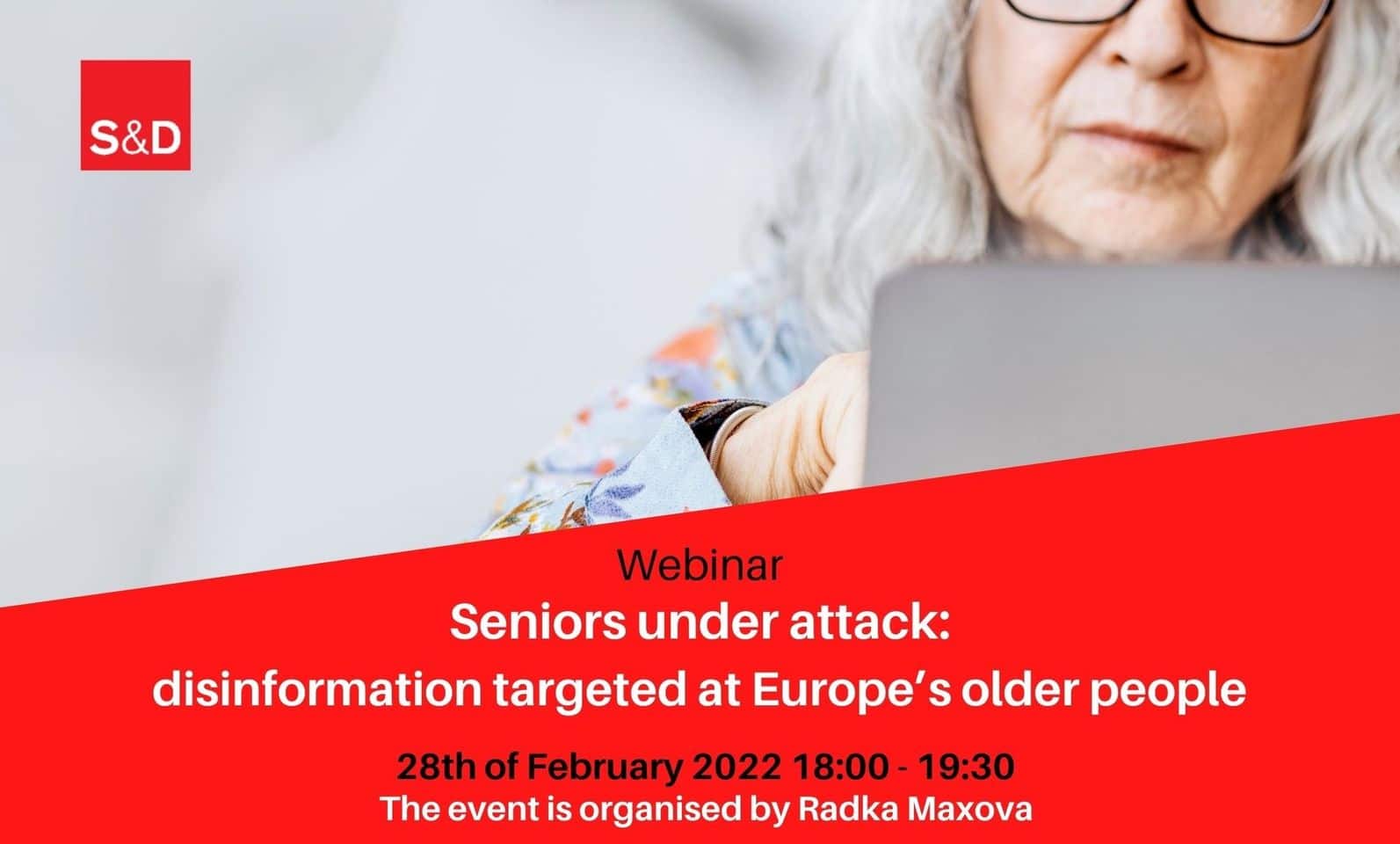As our societies become more digital, disinformation is also spreading. A growing trend that can have a detrimental impact on vulnerable people, as the COVID pandemic has revealed. An issue recently addressed during the webinar “Seniors under attack – disinformation targeted at Europe’s older people”.
The goal of the webinar, hosted by MEP Radka Maxová, was to share best practices and raise awareness about the important issue of disinformation. The event featured several experts who are dealing with disinformation, starting with two introductory presentations on older people and disinformation before sharing best practice examples from various European countries.
Gianluca Coppola, European Digital Learning Network, asked the question whether disinformation could be linked to the digital education gap of older people. To this end he proposed four measures to mitigate the issue:
- increase digital training opportunities to trigger a sense of responsibility when interacting with online information
- make teaching of basic skills compulsory from an early age
- engage with social media companies to establish a system of feedback loops and assistance on how to protect citizens from harmful information
- disseminate a culture of positive behaviour online through netiquette education
Vera Hörmann, AGE Platform Europe, also provided insights on the connection of digital and media literacy skills in older people. She highlighted that there is a common interest across all age groups for more digital proficiency and a shared curiosity for tackling disinformation. However, the vast majority of the initiatives inclusive of older people focus on digital skills to use devices and the internet, and only very few of them address how to understand and react to online content.
Antonio Dell’ Atti, Coordinator of the DIGITOL project, then shared the experience of one of the initiatives that focus on older people, to combat the effect and the spread of fake-news by developing older persons’ digital literacy and promoting EU common values among older citizens. To achieve this, DIGITOL used innovative intergenerational educational practices and engaged older adults in non-formal education and co-created training opportunities.
Jaroslav Valůch, Transitions (TOL), shared lessons learnt from running programmes with the objective of boosting disinformation resilience among Czech seniors. The entry points were disinformation and media literacy but the programmes evolved into something more, to create trust in good quality journalism and responsible information processing. And trust in your own ability and capacity to navigate the information disorder. All while creating new opportunities to meet, enable social contact, exchange ideas and experiences and make new friends.
Karolina Smigiel, Seniors on the Web, focused on older people’s media literacy – putting older people behind the steering wheel in Poland. 3 modules were developed offline and then translated into an online course for older people on:
- Reading information: How to read information critically
- Online safety: online security and privacy, digital image, advertising, profiling
- Constructive online communication (if and how to react to hate speech online)
Over 400 older people took part in the online courses.
Bohumil Kartous, CEO at Prague Innovation Institute, provides experts, media and public policy makers with information on the disinformation scene in Czech Republic: websites, social networks, chain emails. Together with other Czech partners, they are also currently establishing an academy of media literacy and translated the GO VIRAL! Game by the Cambridge University on helping to protect against Covid-19 misinformation into Czech.
Following the presentations, participants discussed what policy makers could do to support their efforts. A recurring point was education: digital inclusion initiatives need to be coupled with media literacy education and they need to be accessible – both in content and format/logistics, as well as systematically happen across the life-course.
Further messages to policy makers included:
- Involve social media and public institutions in fact checking
- Trust civil society in carrying out actions and work with them in scaling-up solutions
- Enable interdisciplinary exchanges across countries and fund social initiatives to support older people to build up trust
- Policy makers need to be transparent, open and communicate better
- Mandate to be transparent who is behind producing content
- Support diversity of media







